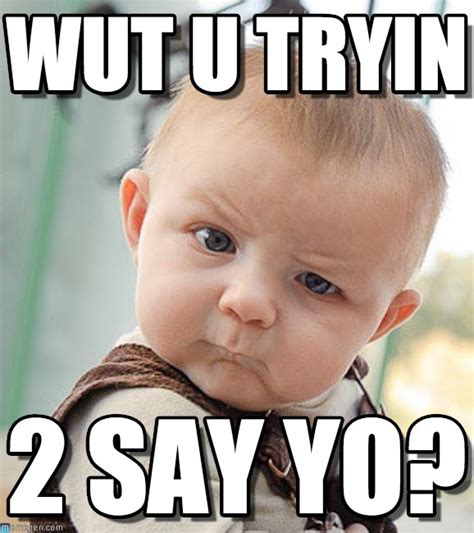|
Listen to this post:
|
In my previous post, I concluded that this apologist had switched from a trinitarian to a unitarian theology. Why? Mainly because he cites this piece, which says in part,
The following two conditions below are central to this specific model:
(MT) (a) There are three entities within the Trinity: the Father, the Son and the Spirit, each of whom share one divine nature and thus are each equally termed ‘God’ (in the predicative sense).
(b) The one ‘God’ (in the nominal sense) is numerically identical to one of the entities: the Father, who is the sole ultimate source of the Son and the Spirit.
According to Monarchical Trinitarianism, as expressed by (MT), the Father is the sole ultimate (unsourced) source of everything else and thus possesses a specific priority within the Trinity (and reality as a whole). This specific priority grounds the fact of the Father being designated as ‘God’ in the primary (i.e. nominal) sense of the word. That is, the Father is numerically identical to the one God. Whilst the Son and the Spirit are each, with the Father, ‘God’ in a secondary (i.e. predicative) sense of the word (by each of them sharing in the one divine nature). Therefore, this specific view of the Trinity posits the existence of three entities: the Father, the Son and the Spirit, who are each ‘God’ in the secondary (predicative) sense. Yet, there is only one ‘God’ within the Trinity, as only one of those entities: the Father, is ‘God’ in the primary (nominal) sense of the word.
This is a subordinationist unitarian theology because of the highlighted parts. But does this so-called “monarchical trinitarianism” really represent Jones’s views? He says it does, but it’s unclear.
After seeing my blog post, our friend Jake the Muslim Metaphysician re-posted this recent interview with Jones:
Some observations:
8:00 After citing Sijuwade, Jones characterizes his own view as “social trinitarian.” Most “social” views would agree on the three entities part of the above theory, but would deny than the one God just is the Father. Why? Being trinitarian, they want to say that the one God is the Trinity, not the Father.
13:30 I frankly don’t understand his “agent within the agent” idea. The examples he gives seem to me to involve exactly one agent.
14:20 His takes this unclear philosophical idea and tries to use it to expound what “the Trinity” amounts to. The “Persons” are “the narrow sense of agency.”
Comment: Huh? This looks like a classic example of trying to illuminate the obscure with something even more obscure.
15:30 Jake tries to help him to clarify what he’s saying. “three wills”
16:55 Jones says that he’s just exploring these ideas.
Comment: Fair enough. But I would press him – either God is the Trinity, or God is the Father alone. Which is it?
17:20 Jones denies “partialism,” i.e. the Persons as proper parts of God.
18:25 Jones takes another crack at expressing the view. Three consciousnesses (I think he means selves) within one “being.”

Comment: OK. But is that being one and the same as the one God?
19:00 Why aren’t the Persons parts of God? Jones says that he “is” both narrow and broad senses of agency. Narrow agents are parts (but not physical parts) of who I am.
Comment: Huh?
20:00 Jones seems to say that even though the Persons are truly three beings, they share all of the same (type? token?) mental states. Jake then asks if in saying that each person “is God” he means to identify them or is he rather predicating divinity of each, and Michael Jones picks the latter.
Comment: But this is a mistake, if he agrees with the view quoted above. On Sijuwade’s view, you can predicate “God” of each – in other words, say that each is divine in some sense – but when it comes to the Father (but not the others two) he “is God” in the sense of identity, in other words, the Father “is” God like you are yourself, or like Mark Twain is Samuel Clemens.
21:00 Each Person is “fully God,” not a proper part of God.
Comment: It seems to me that Michael Jones is attracted to two clashing theologies. On so-called “monarchical trinitarianism” (which is really subordinationist unitarianism) the one God just is the Father alone, so he is “fully God” in a way that the other two are not. Not only do the other two fail to be numerically one with God, but also because of the processions, they (but not the Father) will lack the divine attribute of aseity.
21:15 Jake asks how tritheism will be avoided. On the view quoted, this question is already answered. But what does Michael Jones say? He gives a sci-fi analogy where one self somehow contains three agents or “centers of consciousness” (again, I assume he means selves). These “share a broad sense of agency.”
Comment: I don’t know what that last sentence means, but he seems to now be imagining a four-self Trinity, in which one self (the triune God) has within him somehow three other selves (the Persons). Is this metaphysically possible? I’m inclined to doubt it. But let me briefly complain now that this is the third theology Jones is floating in this conversation.
23:44 Jake, like the audience, is still trying to figure out just what view Jones wants to defend. Jake asks if there are mental differences between the Persons. Jones seems to say No to this. Jake points out that only the Father should be able to truly think “I am the Father” etc., so mustn’t there be some differences in these three states of mind? Jones agrees.
25:13 Jake asks Michael for how Philosophy of Mind is going to clarify this situation, as Michael has suggested. Jones suggests, plausibly, that states of mind are not parts of that mind.
27:30 Jones affirms in passing his belief in a triune God. Though we can think of ourselves as containing multiple agents, we really are one; and so even though these “Persons” in God are akin to the “narrow agencies” we find within us, still, there is only one acting being here, God (i.e. the Trinity). And there would not be two kinds of divinity in this picture.

Comment: OK, this is now sounding like a one-self Trinity theory, where God/the Trinity is a self, but the “Persons” are something less than selves within him. This is completely against the view I quoted at the start.
28:20 Jake: Surely, mental states (e.g. this thought and that thought) in one agent are distinct from one another. Of course, Jones agrees. Why, then, Jake asks, are they not non-physical parts of the mind they’re in? Jones is not sure that makes sense.
30:00 Jake presses the point that Jones must say that there are mental differences, e.g. self-referring beliefs like “I am being crucified,” between the Persons.
33:30 Are persons substances? Jones, reasonably, says yes. But then he muddies the waters about whether the “Persons” in God are really three distinct things/entities/substances or not, again mentioning his sci-fi example.
Comment: If each Person is fully divine (has everything it takes to be a god) then three substances/beings are worrisome for the trinitarian, who does not want “the Trinity” to imply three gods. But notice that on the theology quoted at the outset, only the Father is fully divine. Thus, his the only god. (Whatever the other Persons are remains to be said. But they won’t be gods, as each lacks at least one divine attribute, aseity/independent existence.)
37:00 Do the Persons on this theory have perfect access to each other’s states of mind?
37:40 Jones mentions in passing that he accepts some form of the traditional “generation” and “procession” speculations. This fits with the “monarchical trinitarianism” we started with, but is also affirmed by various trinitarian views (and not by others).
39:30 Jake (like the audience) is still trying to understand what theology is being proposed, and askes some good questions. Jones mentions his committment to panentheism and idealism and “divine energies.”
41:00 Jones says that all three persons share the divine essence (universal? particular?), which I think affirms that each is fully divine.
Comment: So either it is false that only the Father has the divine attribute of aseity, or it is false that aseity is a divine attribute. Which way will he go?
42:00 The imaged sci-fi guy’s internal persons share his essence.
Comment: so then there would be four of whatever species the guy is. :-/ Oy, this is getting messy.
42:20 Re: the processions, Jones says this will involve the Persons only differing relationally, not intrinsically. This rabbit trail about processions goes on for some time.
52:30 Does divinity imply aseity? Jones: No. Only the Father is a se, but this is not because of his being divine.
Comment: Then his theory has a glaring tritheism problem: three things, each of which has all it takes to be a god.
55:00 Jake makes the interesting objection: if aseity isn’t included in divinity, does that mean that it is conceivable or possible that some non-divine being could exist a se?
1:01 And, Jake asks, if he is not, as divine, a se, how can God be a metaphysically necessary being? Then Sijuwade’s deep thoughts about intrinsic properties.
1:04 Jones’s views have evolved a lot since he made a lot of his Trinity YouTube videos.
Comment; OK, but evolved into what?
1:05 Jake invites him to fully state and clarify his view of what “the Trinity” is. Jones says the Trinity is one being “analogous to our broad sense of agency,” within which there are “three narrow senses of agency.”
Comment: This is not intelligible. Why the talk of “senses” (i.e. meanings)? I can’t see that any understandable model has been stated. He’s making an analogy to how with think of ourselves as agents – I understand that much – but I guess I would ask: how many of these are selves: Trinity, Father, Son, Spirit? One? Three? Four? Don’t tell me about difference “senses of [the word] agency.” Tell me instead about those things.
1:07 Jones: I don’t see any logical incoherence here.

Comment: I don’t either, because no clear view has been stated. It’s too muddy to detect implied contradictions.
1:07:20 Jones: This clears up some issues, e.g. the divinity of the Trinity vs. the divinity of the Persons. “In a mental reality those don’t seem to be real issues.”
Comment: I don’t get it.
1:07:30 Jake: is your view found anywhere in the literature, or is it inspired by any article or book? He says that he’s not exactly offering a model of the Trinity, but that this is the same as Sijuwade’s theory above.
Comment: Not unless he identifies the one God not with the Trinity but instead with the Father.

1:08 Jones: It’s really just another angle, a mental one, on the Trinity, or preferring mental to physical analogies, trying to apply Philosophy of Mind or Action work. But a bit later Jones says that ultimately, God is a mind.
Comment: I take it, a thinker, a self. Then this is sounding like an undeveloped one-self Trinity theory. But I’m starting to get the same headache as Jake’s so-far silent friend Abdul.
1:10 Jake: isn’t any three-will Trinity theory contrary to the early orthodox view, which requires one will in the Trinity? Jones: Maybe, but who cares?
1:12 Jake: they thought that wills go with natures, not with persons, according to the 681 council.
1:14 They go back to discussing necessary existence and whether or not God has it and how it relates to aseity. Jake urges, plausibly, that aseity implies necessary existence (existing no matter what, existing “in all possible worlds”).
1:19:48 Abdul speaks!
1:20 Jones again opines that many objections to Trinity theories “rely on physical parameters” and again expresses the hope that Philosophy of Mind distinctions will help with a Trinity theory.
Comment: Actually, it is rare for objections to Trinity theories to treat the Trinity as if it were a physical object.
Overall reaction: Actually constructing or even just committing to an actual Trinity theory is hard. As of this conversation, Michael Jones did not have a Trinity theory, but only hopes and dreams that a philosophy of action distinction (that he did not clearly state) or in general Philosophy of Mind are going to help. He thinks he’s a social trinitarian, and also that he’s a “monarchical trinitarian,” but these are not consistent views. He seems to be committed, with mainstream catholic traditions, to some sort of tripersonal God, but if the one God is tripersonal then the “monarchical trinitarian” claim that the one God just is the Father is false. So unless Michael has clarified his views since 9/29/22, my previous post must be mistaken. At least on that date, not only was he not at stage 5, he was sort of wandering lost in stage 3.
It makes sense, actually, that he wouldn’t have a theory; in the past he has relied on elaborate justifications for “the Trinity” being something we can’t really conceive of. And for an apologist, it doesn’t pay to have a clear and consistent view; such would be a refutable view.
Nonetheless, I urge that he should clarify for the public: in his view, is the one God one and the same with the Father alone (in which case he is a unitarian), or is the one God one and the same with the Trinity (in which case he is a trinitarian)? If he takes the second option, he should disavow “monarchical trinitarianism.”
Conclusion: next time an apologist confidently talks as if “the doctrine of the Trinity” is some one theology, remember all of this sliding around. The Trinity club requires little of its members, when it comes to having any firm views on “the Trinity.”

Its a confused version of Tertullian’s trinitas doctrine from someone who hasn’t read Tertullian directly. Tertullian point blank says “The Father is the whole and the Son and Holy Spirit are parts of the whole.” I would not call it unitarian because I save that term for those who say the Son is only a man and not God in any sense.
“But I would press him – either God is the Trinity, or God is the Father alone. Which is it?”
Per this doctrine the Father is the Trinity not a menmber of the Trinity. The Son and Holy Spirit are members. i.e. as Tertullian point blank says “The Father is the whole and the Son and Holy Spirit are parts of the whole.”
Comments are closed.